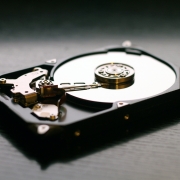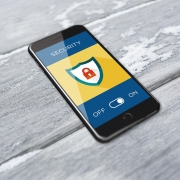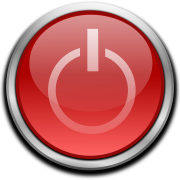Should You Upgrade or Replace Your Laptop?
By Marco Horn / Tim Fisher
Deciding whether to upgrade or replace a laptop is a big decision, and it can be complicated to know when or even if you should. You need to consider if the labor is worth it — if it’s cheaper to replace or rebuild, and whether or not you actually need to do it.
The different components on a laptop are not as easy to replace as are the ones in a desktop computer, but it certainly is possible to upgrade a laptop if you have the patience and proper tools. That said, some of the suggestions below involve using external hardware to supplement for outdated, missing, or damaged internal components.
1. My Laptop Is Too Slow
The primary hardware that determines the speed of a computer is the CPU and RAM. You could upgrade these components but it’s not super easy to do in a laptop. In fact, if you find that either is damaged or not up to par with your requirements, replacing the laptop is probably a wise decision.
However, of the two, the memory is the easier one to deal with. If you need more RAM or would like to replace bad memory sticks, and you’re okay with doing this yourself, you can often open the bottom of the laptop to do that.
2. See How Much Free Storage You Have
If your laptop’s hard drive is running low on free space, it can certainly grind things to a halt and make programs open more slowly or files take forever to save. So be sure to check your available hard drive space just to be sure.
If you need to move some large files off of your hard drive to quickly free up space to see if that helps the overall performance, use a free disk space analyser tool to see where all the used space is going.
3. Delete Junk Files
Temporary files can take up loads of free space over time, contributing not only to a full hard drive but also compounding the performance hit by making programs work harder or take longer to do their everyday tasks.
Start by clearing the cache in your web browser. Those files are safe to remove, but when left, and given time, will definitely slow down page loads and potentially even the whole computer.
Also, delete any temporary files your computer might be holding onto. They can often be using multiple gigabytes of storage.
4. Defrag Your Hard Drive
As more and more files are added and removed from your laptop’s hard drive, the overall structure of the data becomes fragmented and slows down read and write times.
5. Need More Laptop Storage
If performing the above tasks did not clear out enough storage or if you need additional hard drives in your laptop to back up files or store data, consider using an external hard drive to expand the laptop’s storage.
Buying an external hard drive is cheaper and much easier than replacing the internal one.
6. Check for Malware
It might seem odd to check for viruses when you’re considering whether you should replace or update your laptop, but malware can absolutely be a reason for a slow laptop.
Install an antivirus program to always stay protected from threats, or scan your computer for viruses before it boots if you aren’t able to log in.
7. Physically Clean the Laptops
If the vents to your laptop’s fans are caked with dust, hair, and other grime, the internal components can heat up much faster than what’s considered safe. This can force them to work overtime which can take away their primary purpose of keeping your laptop in tip-top working order.
8. The Laptop’s Hard Drive Doesn’t Work
Generally, you should replace your bad hard drive over buying an entirely new laptop. However, your decision to do this should only be made after making sure that the drive is truly irreparable.
If you think you need to replace your laptop hard drive, first run a free hard drive test against it to double-check that there are actually problems with it.
Some hard drives are in perfect working order but just give off an error that makes them halt the regular boot process and appear to be bad and in need of replacement. For example, your hard drive might be entirely fine but your laptop is set up to boot to a flash drive each time your computer starts, and that’s why you can’t access your files or operating system.
9. The Laptop Screen Is Bad
A broken or just generally less-than-perfect laptop screen might make it impossible for you to do anything. Repairing or replacing the screen is definitely doable and is not as expensive as replacing the entire laptop.
However, an easy solution if your laptop is more stationary than mobile is to simply plug a monitor into a video port (e.g. VGA or HDMI) on the side or back of the laptop.
10. The Laptop Won’t Charge
Replacing an entire laptop when it’s not powering on is usually overkill; it’s likely just having trouble charging. The problem could rest with the power cable, the battery, or (less likely) the power source — like the wall.
In the case of a bad laptop battery or charging cable, either can simply be replaced. However, you might confirm whether the battery is the problem by plugging the laptop into the wall without the battery plugged in; if the laptop turns on, then the battery is to blame.
11. Want a Newer Operating System
You generally shouldn’t purchase an entirely new laptop just to upgrade the operating system. While it’s true that newer laptops ship with the newest operating system, you can almost always install or upgrade to a new OS on your existing hard drive without replacing anything.
You can use a free system information tool to check what kind of hardware is inside your computer.
12. Laptop Doesn’t Have a CD/DVD/BD Drive
Most laptops today don’t have an optical disc drive. The good thing is that for most of you, you don’t need to upgrade the drive or replace your laptop to remedy it.
Instead, you can buy a relatively small external optical drive that plugs in via USB and lets you watch Blu-rays or DVDs, copy files to and from discs, etc.
If you do have an optical disc drive but it’s not working properly, attempt to fix your DVD/BD/CD drive before looking into replacing the whole system or buying a new ODD.
13. You Just Want Something New
Sometimes it’s just time to move on, if only because you’re ready for something new and better.
 IT Experts are specialists in this field.
IT Experts are specialists in this field.
Contact us for any assistance that you need.
In a matter of minutes we can remotely log into your computer – safely and securely – to assist you with any issues you might experience.
What is remote support? Click here to find out.












